 "QUANTUM SHOT" #340(rev) "QUANTUM SHOT" #340(rev)Link - article by Avi Abrams Loud, Obnoxious, Smoke-Belching Beasties... Not always detailed in brass, but nearly always surrounded by clouds of noxious steam (which some would say, adds to their mystique), these Victorian monster transports could seat many passengers in (rather dubious) style - but more importantly, these vehicles were not confined to rails and could go virtually anywhere. Today, you can rent them for your next romantic outing, but don't forget to supply your date with a good pair of goggles.   (images via: ImageStudio, Lord-K) First, a Modern Example This bus took ten whole years to build: the Sentinel Typhoo is made from various tractor parts and is powered by a 100 horse power locomotive steam engine. This makes it already "more" than a tractor, somewhat "less" than a train, and to be sure, "exactly" a bus - a moving, "breathing" hybrid machine.    (images via) Steam Bus History Highlights Perhaps the first in a noble line of steam transportation, was this 1853 Dudgeon Steam Wagon:  (all images via) London Railroad employed steam buses to bring passengers to its stations (Torquay and Staffordshire Stations, 1904-1907):  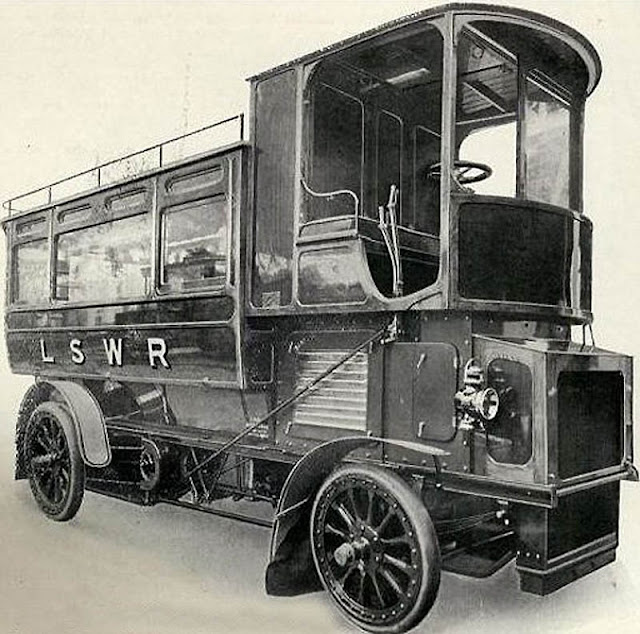 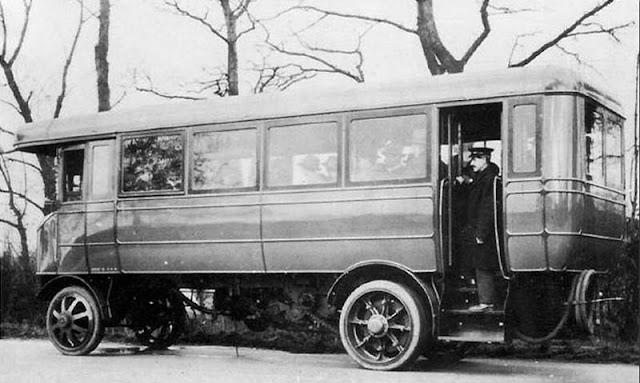  (images credit: Reed Business Information) Regular bus transportation in Paris also used steam vehicles, namely, De Dion (1907) -  Steam buses started to appear in London in 1898 (based at Victoria Station), being introduced mostly as an experiment. These were made by De Dion and lasted whole two years on the streets of London. Strangely, they did not enjoy immediate popularity (perhaps due to their loud, steamy nature). Here is a steam bus Foden made from the tractor chassis, photographed in 1913 - 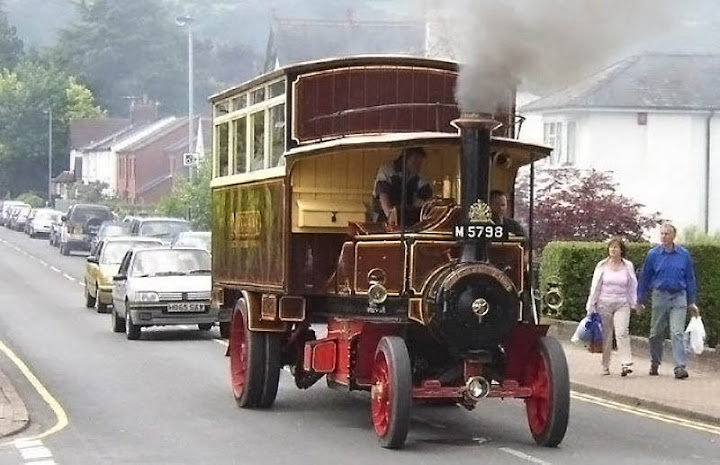 Here is a couple of "Sentinel" steam buses, made as late as 1931: 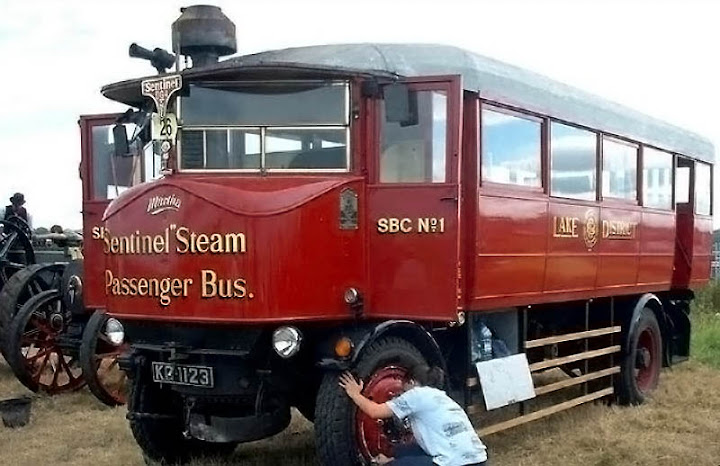 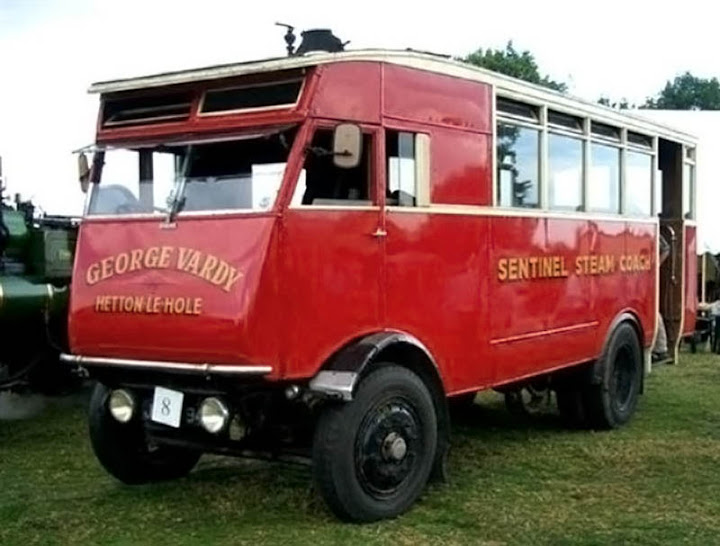 ... and a modern steam bus conversion: "Old Glory": 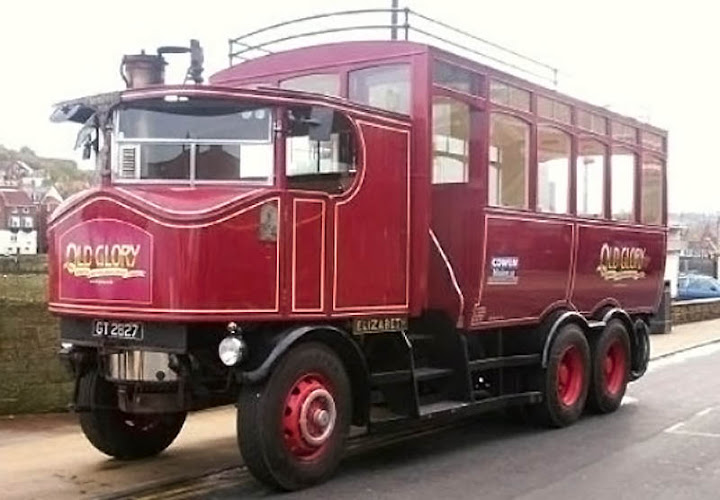 This "Old Glory" was made from an old steam truck "Sentinel DG-6" - 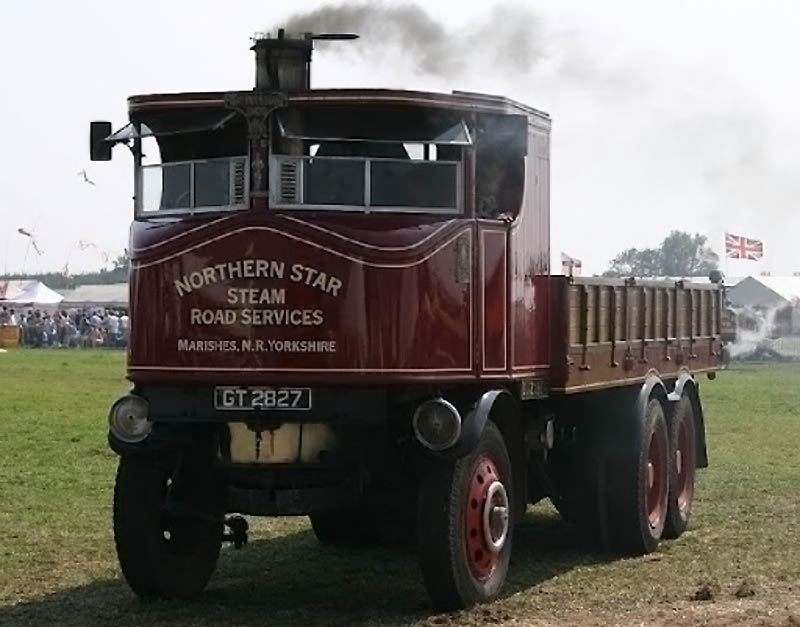  (bottom image credit: James Powell) All of this brings us to the no-less-fascinating... Steam Trucks! Steam Trucks: Big, Ugly (?) and, alas, Extinct Sometimes called "locomobiles", these imposing vehicles were manufactured in England as late as 1950, which only shows the reluctance of engineers to abandon steam power as viable means of on-road transportation. Starting in 1905, various models of steam-trucks, or "lorries", graced UK streets without changing much in appearance throughout the years: 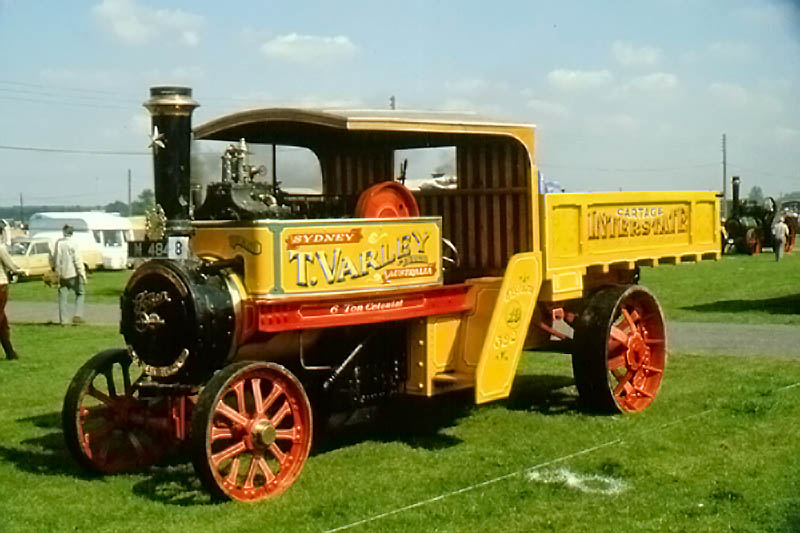 Foden Colonial Tipper, 1913 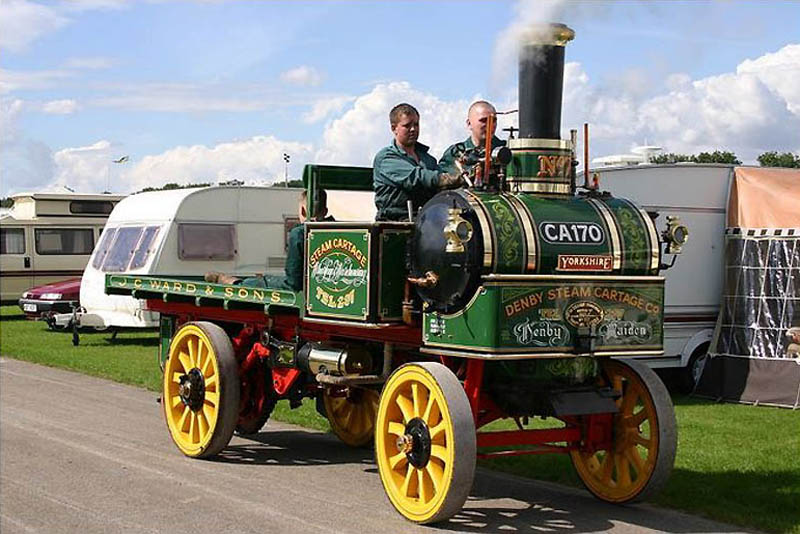 Yorkshire, 1905  Sentinel Standard Wagon, 1916  Mann Wagon, 1919  Aveling & Porter Lady Fiona, 1922 (images credit: Steam Scenes)  Yorkshire, 1927 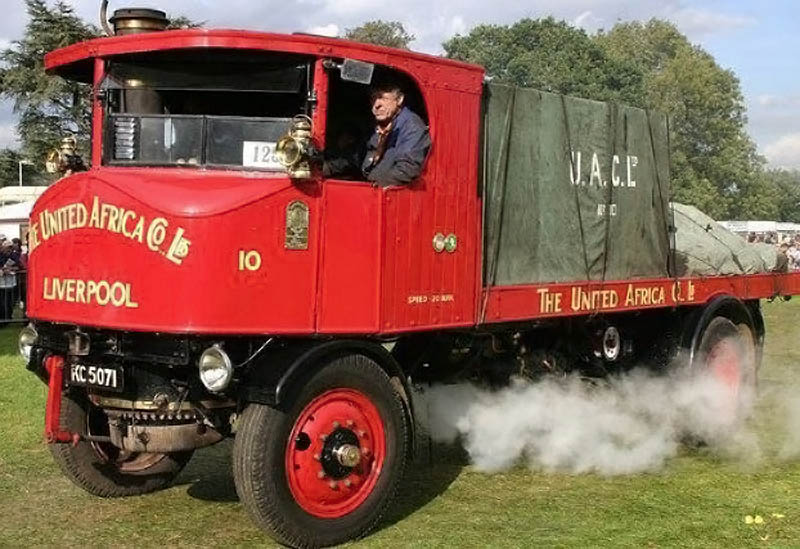 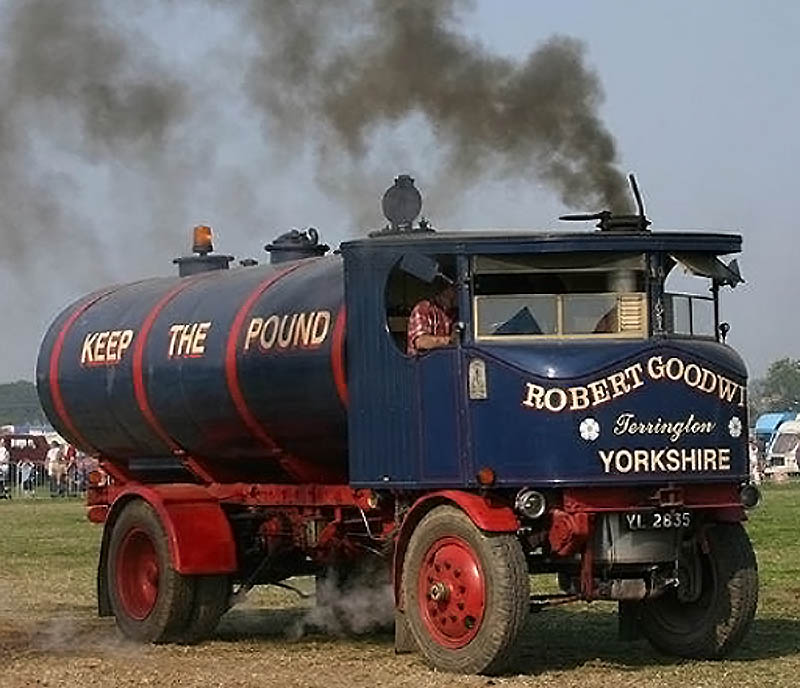 Sentinel Super Waggon, 1924 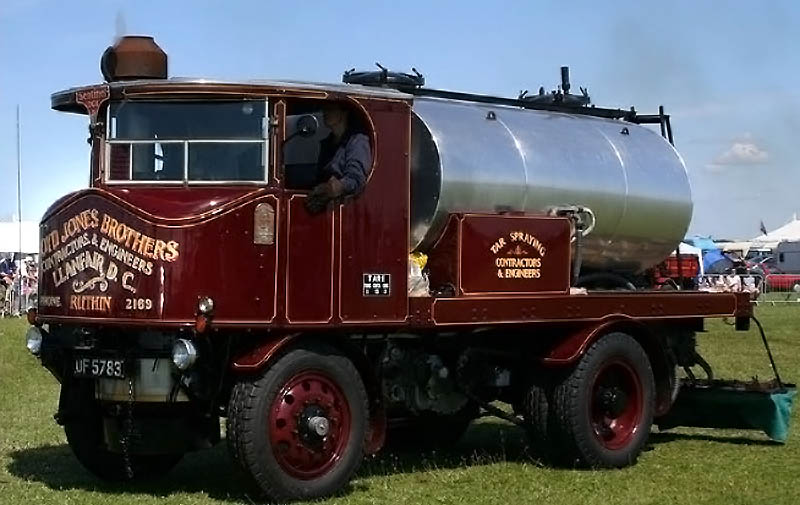 Sentinel DG, 1929 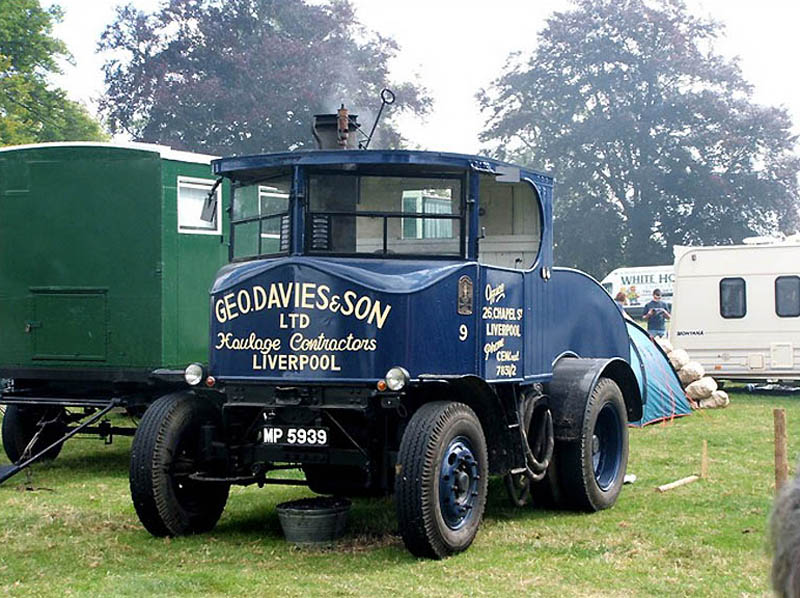 Sentinel DB4, 1930 Apparently, some of the "Sentinel" trucks were capable of doing 100 km/h and boasted up to 200 horse power engines:  Many steam trucks had various brewery logos painted on their front end and on the sides, as they were widely used for transporting beer (what a lovely detail in their history!). Some trucks looked especially impressive on an early morning highway, draped in fog: 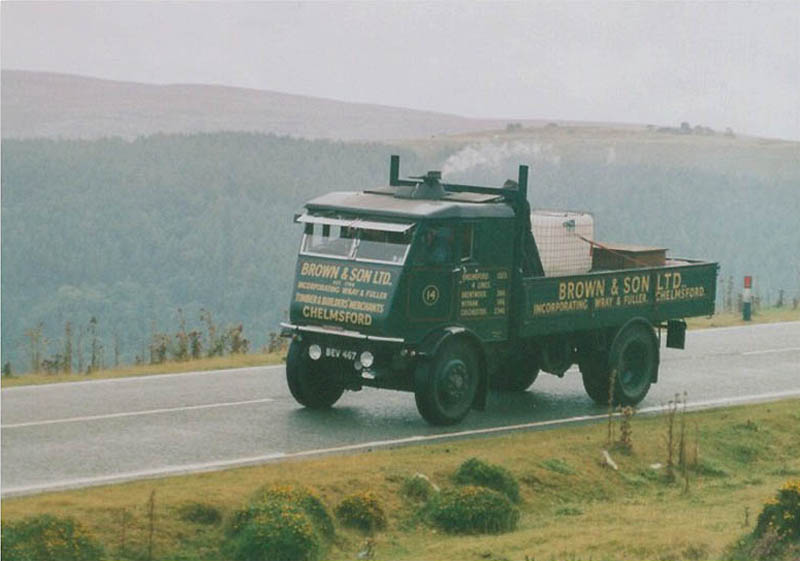 Steam-Powered Tractors, "Road Locomotives" and Other Steam Beasties  Aveling and Porter Shamrock, 1922  Sentinel Tractor Elephant 1924 (image credit: Steam Scenes) Road Locomotives: These were pretty curious beasts... many-wheeled vehicles with a steam engine taken from a train! They were also called the "Showman's Engines", because often they were used to pull traveling circus attractions behind them... and when not moving, there were used as a power source for traveling fairs and carnivals.  Fowler Iron Maiden, 1920 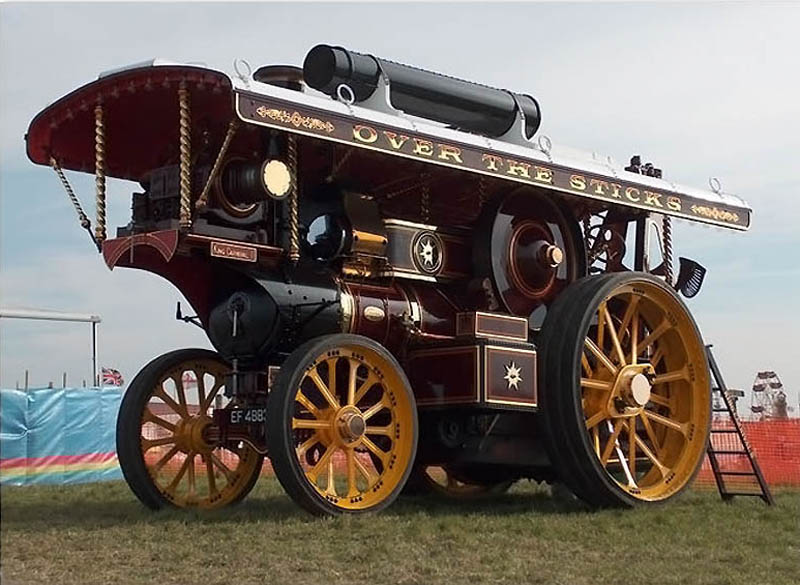 Fowler King Carnival II, 1932 (images credit: Steam Scenes) By the way, "steam carriages" also looked quite radical: these were actual horse carriages put on top of a steam engine, like this:  (image via) Steam Fire engines will certainly require an article of their own; these machines were equally stunning as works of art and as proud showcases for a local fire department:  (image credit: Josh Sommers) Here is a steampunk-style "smoke helmet" on a vintage firefighter, photographed in Moscow in 1930:  (photo by Alexander Rodchenko) BONUS: Antique Wrecks Check out these accidents from hundred years ago... Some accidents involved running over a stray chicken, but others were a bit more serious in nature, like running into a ditch:   (images credit: ImageStudio; special thanks for the material provided by Lord_K and Svyatozar Chernov) Driving back then seemed to be a piece-of-cake. All you had to do was watch for dogs, chickens (and occasional cows)... be careful not to "run out of steam", and not to break the government-imposed maximum speed limit, which (in some cases) was a scorching five miles an hour! |
Steam Buses & Trucks
Etiquetas:
Curiosities,
doc's,
DRB,
fun,
strange

